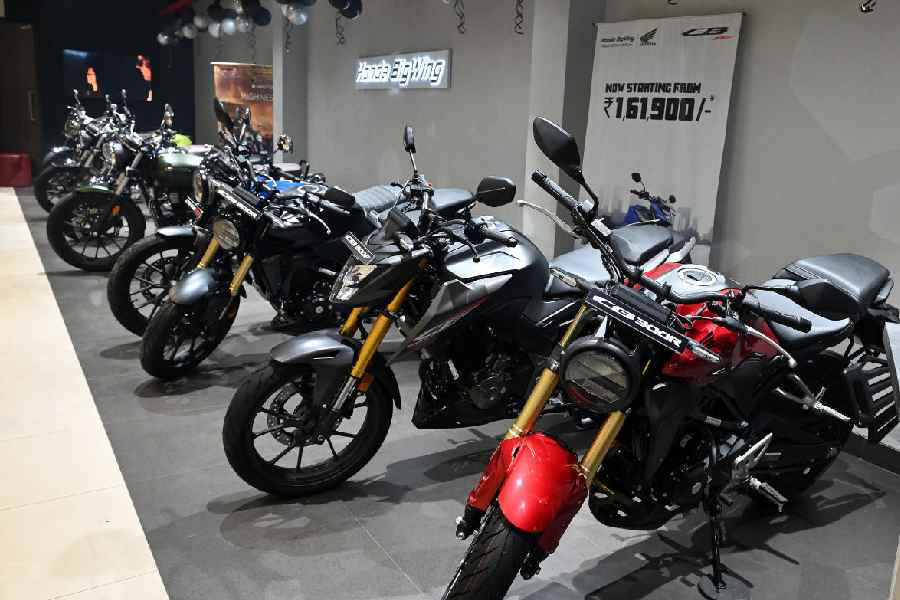Two-wheeler major Honda Motorcycles and Scooter India (HMSI) expects rationalisation of GST rates to give a much-needed boost to demand amid an unexpected slowdown in sales.
Data from industry body Federation of Automobile Dealers Association (FADA) shows that retail sales of two-wheelers have grown by only 2.37 per cent between April-July 2025. Siam data, which reports vehicles dispatched from manufacturers to dealers, shows domestic sales of two-wheelers between April-July 2025 were down 2.9 per cent over the year-ago period.
Yogesh Mathur, director - sales and marketing, HMSI, said that the industry had started the year on a promising note, hoping for a strong demand for two-wheeler sales on the back of the rationalisation of income tax slabs and a strong monsoon.
“Even amid global uncertainties, the Indian economy is showing resilience. But somehow that is not getting percolated into demand and actual sales. Our understanding is that at the ground level, the situation is somewhat different. Demand in certain pockets is increasing, but this is not pan-India. Majority of the volume of two-wheeler sales is from rural areas and that’s not growing,” Mathur said.
Under the present GST structure, there is a 28 per cent tax on two-wheelers. The government has proposed retaining just the 5 per cent and 18 per cent slabs and doing away with the 12 per cent and 28 per cent slabs. This would entail 99 per cent of the items in the 12 per cent slab moving to 5 per cent, and around 90 per cent of the items in the 28 per cent slab moving to 18 per cent.
“It’s going to be a game-changer primarily because there are many sets of consumers who are staying away from the segment because of affordability. Once the rationalisation happens, first-time buyers probably will start coming back into the market,” said Mathur, adding that the industry can clock a 5-6 per cent growth for the fiscal, post rate rationalisation.
HMSI has launched two new motorcycles — CB125 and Shine 100 DX, which could benefit from a demand recovery on the back of lower tax rates.
Industry concern
There is no clarity on whether there would be a uniform GST of 18 per cent on two-wheelers under the new GST structure or whether there would be a split tax regime based on the engine capacity of the vehicle.
“To sustain momentum, a uniform GST of 18 per cent across all two-wheelers is critical. Lowering GST for <350 cc will help broaden access, but raising GST for the >350 cc would damage the segment vital to India’s global edge,” said Siddhartha Lal, chairman of Eicher Motors, parent company of Royal Enfield, said.
Lal said that a differential rate would dramatically shrink the domestic >350 cc segment and choke investment needed to compete globally.
“Motorcycles above 350cc make up around 1 per cent of India’s two-wheeler market. Raising GST on them would add negligible revenue but contract the segment,” he said.
He added that a GST on >350 cc bikes “would relegate us to smaller capacity two wheelers” and undermine the ability of Indian brands to expand worldwide and build stronger dealer networks.










